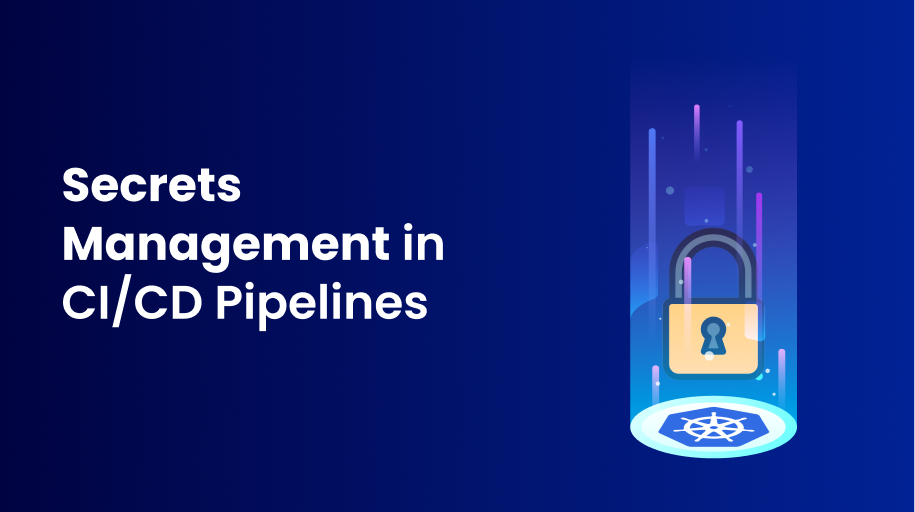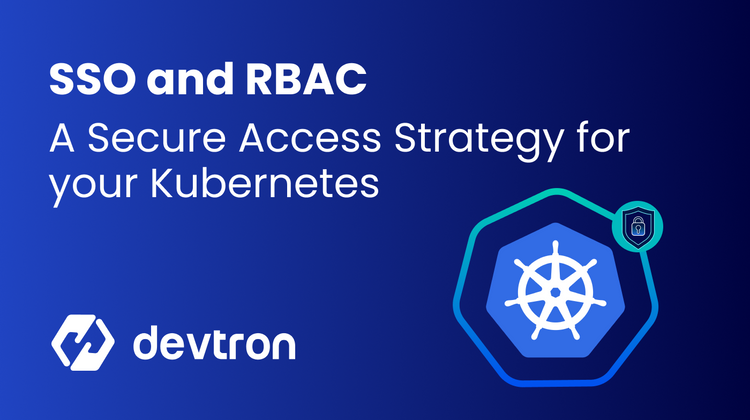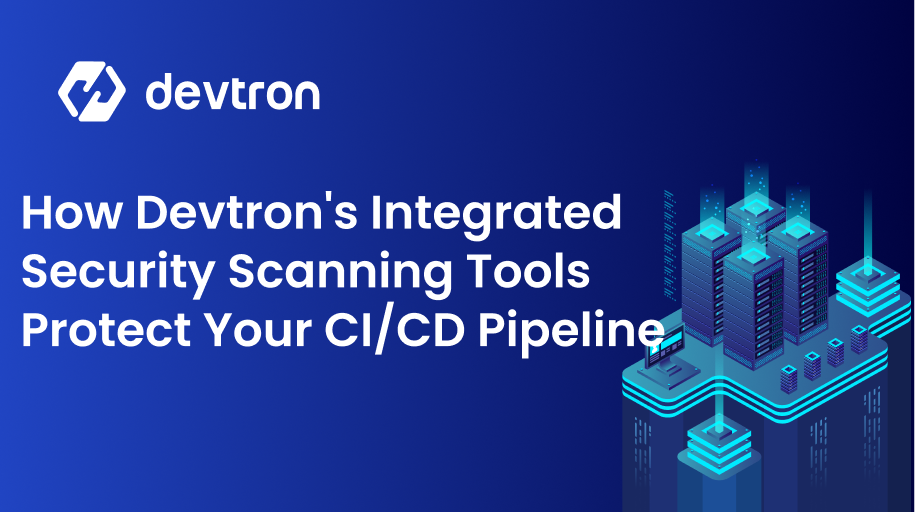Managing secrets like API keys, tokens, and passwords has always been one of the trickiest parts of setting up a secure CI/CD pipeline. In traditional setups, secrets often end up hardcoded in scripts, buried in config files, or loosely managed in shared storage, making them vulnerable to leaks and unauthorized access. As pipelines become more complex and automated, the risk only grows. In this blog, we’ll dive into the common pitfalls of traditional secret management in CI/CD and explore best practices to handle secrets safely, scalably, and smartly.
Challenges of Secrets Management in CI/CD
Managing secrets within a CI/CD pipeline is far more complex than just storing passwords securely. As organizations scale their pipelines, the challenges surrounding secrets management intensify. Here are some of the key obstacles teams often face:
1. Hardcoding Secrets in Code
One of the most significant risks in Secrets Management in CI/CD is hardcoding secrets directly into source code or configuration files. Even in private repositories, this practice exposes sensitive information to accidental leaks or unauthorized access, compromising the integrity of the entire pipeline.
2. Fragmented Storage of Secrets
In many CI/CD setups, secrets are scattered across different tools, environment variables, configuration files, and vaults, making them difficult to manage. This decentralized approach creates silos, increasing the complexity of ensuring all secrets are handled consistently and securely, while also making it more challenging to audit and enforce centralized access policies.
3. Manual Rotation and Expiry Challenges
Manually rotating secrets in a fast-paced CI/CD environment is both error-prone and time-consuming. Organizations often skip or delay secret rotation, leaving credentials valid far longer than they should be, which significantly increases the risk of exposure or compromise.
4. Lack of Visibility and Auditing
CI/CD pipelines often lack robust monitoring and auditing capabilities for secret access. Without detailed logging, teams struggle to track who accessed which secrets and when, making it difficult to detect potential leaks or respond swiftly to incidents.
Best Practices for Secrets Management in CI/CD
To overcome the challenges associated with Secrets Management in CI/CD, it’s crucial to implement best practices that protect sensitive data while maintaining pipeline efficiency. Here are some key strategies to securely manage secrets throughout your CI/CD pipeline:
Use a Centralised Secrets Management
One of the primary challenges in Secrets Management in CI/CD is fragmented storage. To address this, centralize your secrets management by using a dedicated tool like HashiCorp Vault, AWS Secrets Manager, or Azure Key Vault. These tools store secrets securely, provide access control, and allow for seamless integration into your pipeline, ensuring that secrets are managed in a consistent and auditable way.
Avoid Hardcoding Secrets
Hardcoding secrets directly into code or configuration files is one of the most dangerous practices in Secrets Management in CI/CD. Instead, use environment variables or secure secret stores to inject secrets into your pipeline at runtime. Tools like Kubernetes Sealed Secrets can help keep secrets out of source code while ensuring they are accessible only to the necessary components of your pipeline.
Automate Secret Rotation
Manual rotation of secrets is error-prone and often neglected. Implement automated secret rotation to regularly change secrets and minimize the risk of compromise. Many modern secrets management tools support automated rotation and allow you to set expiration times for secrets, ensuring they remain valid only for the necessary duration.
Enable Auditing and Monitoring
To address the challenge of lack of visibility, ensure that all secret access is logged and auditable. Enable comprehensive logging and monitoring within your secrets management system. This provides a trail of who accessed a secret, when it was accessed, and from which service or environment. Timely alerts and access logs help detect unusual behavior or unauthorized access quickly, enhancing your ability to respond to security incidents.
Top Tools for Secrets Management in CI/CD
Now that we’ve covered the best practices for Secrets Management in CI/CD, the next step is choosing the right tools to put those practices into action.
Here are some of the top tools trusted by DevOps teams to manage secrets effectively:
1. HashiCorp Vault
With its robust and flexible secrets management system, HashiCorp Vault has dynamic secrets, access policies, and secret leasing capabilities. It is easily integrated with many different CI/CD tools and has identity-based access controls. Vault is best suited for teams that need advanced security features, secret versioning, and detailed auditing features.
Best suited: For enterprises or teams who require granular control and dynamic secret creation.
2. AWS Secrets Manager
AWS Secrets Manager allows you to securely store and rotate secrets like database credentials, API keys, and tokens. It supports automatic rotation using AWS Lambda and integrates seamlessly with other AWS services, making it a top choice for teams building CI/CD pipelines on AWS.
Best suited for: Existing AWS infrastructure
3. Azure Key Vault
Microsoft Azure Key Vault provides centralized storage of secrets, keys, and certificates. Being integrated with native RBAC and into Azure DevOps, it provides safe handling of secrets in Azure environments across CI/CD pipelines.
Best suited for: Teams on Azure DevOps or deploying to Azure cloud.
4. Google Secret Manager
Google Secret Manager offers safe, versioned, and encrypted storage for secrets consumed by applications and CI/CD workflows. It is well integrated with Google Cloud services and provides very fine-grained IAM permissions for secrets access.
Best suited for: Native GCP pipelines.
How Devtron Simplifies CI/CD Secrets Management
While there are many great tools available for managing secrets, integrating them into your CI/CD pipeline often requires significant configuration, custom scripting, or third-party plugins. This is where Devtron excels by offering a developer-friendly, Kubernetes-native platform that simplifies and automates Secrets Management in CI/CD without compromising on security or flexibility.
With Devtron, you get the following features:
- Easy UI-Based Management: Add, update, and manage secrets through Devtron’s simple UI.
- Base Deployment Templates: Configure secret usage, environment variables, and volume mounts directly within reusable deployment templates.
- Versatile Secret Usage: Inject secrets as environment variables directly into your pods or mount them as data volumes with configurable mount paths, sub-path support, and file permissions.
- External Secret Integration: Smoothly fetch secrets from AWS Secrets Manager, AWS SSM, or HashiCorp Vault, and auto-convert them to Kubernetes Secrets.
- Mount Existing Secrets: Mount Kubernetes secrets already present in your cluster.
- Scoped Variables: Manage secrets and sensitive values centrally with scoped access at the global, cluster, environment, or application level. Automatically inject them into deployments, reducing duplication and simplifying secret updates across stages.
Conclusion
Here are the key takeaways:
- Managing secrets in CI/CD comes with real challenges like hardcoding, limited access control, and tool sprawl.
- Following best practices like centralization, encryption, and access restrictions is key to securing pipelines.
- While tools like Vault and AWS Secrets Manager help, integrating them isn’t always simple.
- Devtron solves this by offering a built-in, Kubernetes-native secrets management system that is secure, flexible, and easy to use.
FAQ
How do you manage secrets in a CI/CD pipeline?
Secrets are stored securely in dedicated secret management tools like HashiCorp Vault or AWS Secrets Manager and injected into pipelines as environment variables or files to keep sensitive data safe during deployments.
What are three key features of CI/CD security?
- Secret Management: Secure storage and injection of sensitive data.
- Access Control: Role-based permissions to limit who can deploy or modify pipelines.
- Pipeline Integrity: Automated testing and validation to prevent unauthorized or faulty code from deploying.
What are the Best Practices for Secrets Management in CI/CD?
The best practices for secret management in CI/CD pipelines are:
- Use dedicated secret management tools (e.g., HashiCorp Vault, AWS Secrets Manager).
- Avoid hardcoding secrets in code or config files.
- Inject secrets securely as environment variables or mounted files during deployment.
- Implement strict access controls and audit logging.
- Rotate secrets regularly to reduce risk of exposure.
How does Devtron simplify secrets management in CI/CD?
Devtron offers an easy UI to add, update, and manage secrets. It supports injecting secrets as environment variables or mounting them as volumes, and integrates smoothly with external secret stores like AWS Secrets Manager and HashiCorp Vault.
Can I use existing Kubernetes secrets in Devtron?
Yes! Devtron allows you to mount already existing Kubernetes secrets directly into your pods without creating duplicates, ensuring seamless integration with your current cluster secrets.






